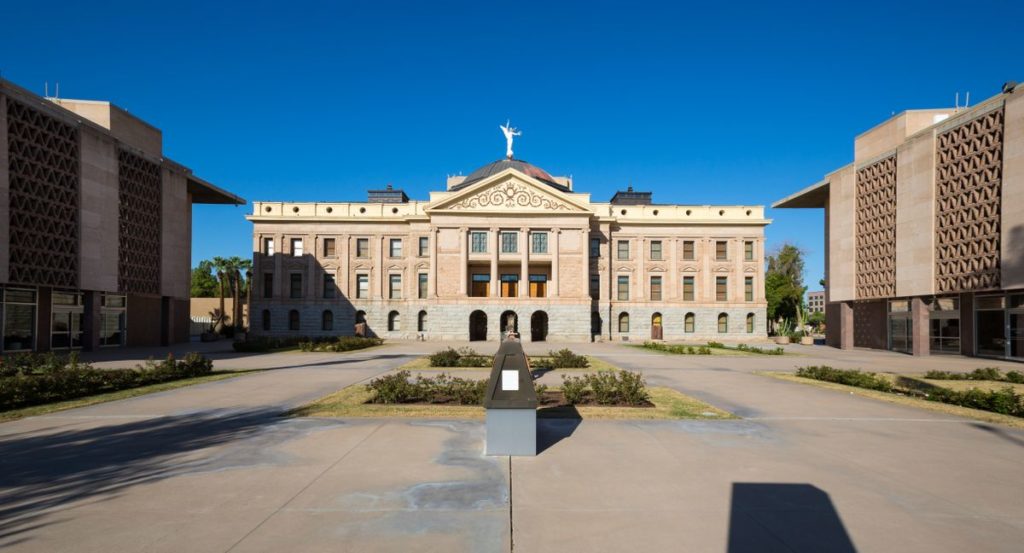22 Jul2022
By Lois J. Gray
This article was originally published by the University of Iowa College of Education.
Thanks to a generous $15 million gift from the Scanlan Family Foundation, the Iowa Center for School Mental Health in the University of Iowa College of Education will be renamed the Scanlan Center for School Mental Health, pending approval from the Board of Regents, State of Iowa, at its July 27 board meeting.
In addition to the new name, the gift will expand clinical support for school mental health in collaboration with the Belin-Blank Center, not only across the state but across the nation.
21 Jul2022
By Meghan Grenda
AACTE’s Member Spotlight features an individual from a member institution, highlighting how their work makes a difference in classrooms across the country. Nominate yourself or another member by providing a response to the following questions and sending to mgrenda@aacte.org.
Get to know Jessica S. McLees …
19 Jul2022
By Meghan Grenda
 Members can book online and save up to 35% off rentals with Pay Now rates. AACTE encourages members to explore additional offers such as complimentary upgrades and find out the benefits of enrolling in Avis Preferred® or Budget Fastbreak® to receive even more free perks like the following:
Members can book online and save up to 35% off rentals with Pay Now rates. AACTE encourages members to explore additional offers such as complimentary upgrades and find out the benefits of enrolling in Avis Preferred® or Budget Fastbreak® to receive even more free perks like the following:
- Expedited Service: Skip the line and go straight to your car at most rental locations.
- Accelerated Rewards: Earn points for every qualifying dollar you spend and redeem them for rental day rewards, additional upgrades, and accessories.
19 Jul2022
By Natalie Khairallah
Educational institutions must engage with their communities to illuminate the systemic injustices experienced by those hypermarginalized, including people and communities of color.
In the Spring 2022 issue of AAC&U’ magazine, Liberal Education, AACTE member Tania Mitchell reflects on the killing of George Floyd to highlight these structural inequities. She urges those in higher education to rethink how community can be created and how to engage differently within the context of racism, economic inequality, and COVID 19:
“Our community engagement work of colleges and universities should be revealing. It should illuminate the systemic injustices that reify and deepen the marginalization already experienced. Moreover, it should focus on the policies, practices, conditions, and experiences that shape the everyday realities of the poor and people of color.”
19 Jul2022
By Natalie Khairallah
 As school districts prepare for the 2022-23 school year, policymakers are determined to prioritize comprehensive solutions to address staffing shortages, a long-standing issue exacerbated during the pandemic.
As school districts prepare for the 2022-23 school year, policymakers are determined to prioritize comprehensive solutions to address staffing shortages, a long-standing issue exacerbated during the pandemic.
AACTE President and CEO Lynn M. Gangone recently shared insight on this topic at a virtual session hosted by the National Governor Association’s (NGA) Community Renewal Task Force. Led by Co-chair and Missouri Governor Mike Parson, the discussion also included Penny Schwinn, Tennessee commissioner of education, and Roberto Rodriquez, assistant secretary of planning, evaluation, and policy Development at the U.S. Department of Education.
19 Jul2022
By Kaitlyn Brennan

This weekly Washington Update is intended to keep members informed on Capitol Hill activities impacting the educator preparation community. The views expressed in this post do not necessarily reflect the views of AACTE.
This week, the 87th biennial American Federation of Teachers (AFT) convention is taking place in Boston, where the city will welcome more than 3,000 members and leaders of the labor group. Today, First Lady Dr. Jill Biden will address the AFT with Labor Secretary Marty Walsh and Massachusetts Sens. Elizabeth Warren and Ed Markey scheduled to take the stage as well. The AFT convention comes as districts across the nation are beginning to prepare for a return to school in the fall while in the midst of a critical shortage of educators and specialized instructional support personnel. An all-hands-on-deck approach will be needed, which includes comprehensive, full preparation coupled with support from federal, state, and local governments in order to address this crisis.
15 Jul2022
By Anna Merod

On July 5, Arizona Gov. Doug Ducey signed a law permitting teachers to instruct in the classroom full-time without a bachelor’s degree. Stock Photo via Getty Images
This article originally appeared on K-12 Dive.
The same week Arizona Gov. Doug Ducey signed into law one of the nation’s most expansive school choice laws, he also approved a new law that would no longer require a bachelor’s degree for teaching in a classroom full time.
The legislation, SB 1159, allows people without a bachelor’s degree to start training to become a teacher while in college and finish that training while also finishing their degree.
15 Jul2022
By Kara Arundel

Jacqueline Rodriguez, Laurie VanderPloeg, and Kaitlyn Brennan talk about special educator shortages during the Council of Administrators of Special Education’s Special Education Legislative Summit on July 11, 2022, in Alexandria, Virginia.
This article originally appeared on K-12 Drive.
While the number of students needing special education services is expected to increase over the next few years, the number of special educators and specialized instructional support personnel are expected to decrease, according to speakers at Monday’s Special Education Legislative Summit, sponsored by the Council of Administrators of Special Education and Council for Exceptional Children.
15 Jul2022
By Weade James

To improve data collection, scholar support and alumni relations, AACTE has instituted these new Holmes Program forms for institutions and scholars:
- Holmes Institutional Application
- Holmes Scholar Enrollment
- Holmes Scholar Exit
15 Jul2022
By Leslie Ekpe

Congratulations to Anamaria Arteaga, the July 2022 Holmes Scholar of the Month. Arteaga is a Ph.D. student at the University of Connecticut’s Neag School of Education.
As the service-learning course instructor for the Human Rights and Action Learning Community, she currently works as a graduate assistant for Community Outreach. Arteaga is also a board-certified behavior analyst (BCBA) with a background in applied behavior analysis (ABA) who has worked with children diagnosed with autism spectrum disorders (ASD) and other related disabilities.
15 Jul2022
By Mike Wolterbeek
 In collaboration with the Incline Education Fund, the Nevada First-Gen Network offers a free summer pilot program to engage and inspire rising 6th and 7th graders from Incline Middle School. The program will expose students to various STEM activities, leadership building, art and culture in a fun and inclusive University-based environment.
In collaboration with the Incline Education Fund, the Nevada First-Gen Network offers a free summer pilot program to engage and inspire rising 6th and 7th graders from Incline Middle School. The program will expose students to various STEM activities, leadership building, art and culture in a fun and inclusive University-based environment.
11 Jul2022
By Kaitlyn Brennan
This weekly Washington Update is intended to keep members informed on Capitol Hill activities impacting the educator preparation community. The views expressed in this post do not necessarily reflect the views of AACTE.
While I typically break from Washington Update during Congressional recess, I am excited to share that last week, the House Appropriations Committee approved the fiscal year (FY) 2023 Labor, Health and Human Services, Education, and Related Agencies bill on a 32 to 24 vote.
The bill provides $242.1 billion, an increase of $28.5 billion or 13% above 2022 funding levels. While significant advocacy work to get this across the finish line remains- the Appropriations Committee’s approval marks a great step in securing historic increases for education funding at the federal level. Your voices are being heard!
11 Jul2022
By Denise Ray

The University of North Georgia’s (UNG) Summer Scholars STEM Institute held throughout the month of June helped pre-service teachers in UNG’s College of Education gain experience in preparing lesson plans in science and engineering while focusing on English language learners. A nearly $300,000 National Science Foundation grant, which runs through 2024, helped fund the academy for 60 students rising into fourth grade through eighth grade at local area schools.
11 Jul2022
By Michael Rose
The U.S. Department of Education released on July 6 draft regulations intended to help student loan borrowers better manage their federal student loans.
Student loan borrowers have long been stifled by the loans they take out to pay for college, preventing them from planning for retirement, buying a home, starting a family and/or achieving other life milestones; in addition, excessive debt is one of the reasons given for why educators leave the profession. While temporary steps were taken to help these individuals during the pandemic, the underlying challenges remain. These regulations are intended to build off the pandemic-relate efforts and create a “more equitable student loan system.”
11 Jul2022
By Kate Cochran and Jacqueline Rodriguez
The National Partnership for Student Success is a public-private partnership committed to providing the supports that will help our students succeed and specifically addresses the ability for students to thrive post-COVID. AACTE has proudly joined the National Partnership for Student Success as a Champion of the initiative.










